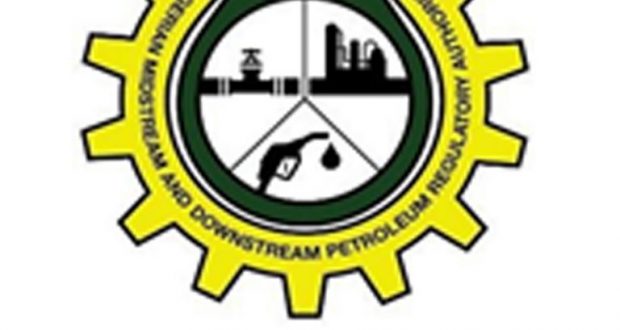…………by Ben Ndubuwa…….
In a significant move aimed at revitalizing Nigeria’s gas sector, the Midstream and Downstream Gas Infrastructure Fund (MDGIF) has called for continued government incentives to attract private investments in gas processing, transportation, storage, and distribution. This recommendation follows the recent disbursement of a substantial ₦122 billion, which is intended to bolster the country’s gas infrastructure and close the existing gaps.
Mr. Oluwole Adama, Executive Director of MDGIF, made these remarks during the just concluded OTL Africa Summit in Lagos, themed “New Energy Order: Updates on Gas, CNG, and LPG.” His address highlighted the critical importance of a supportive regulatory framework to ensure the growth and stability of this vital sector.
“The injection of funds is only a step; consistent policy support and incentives will pave the way for increased private investment, enhancing our domestic gas value chain and promoting Nigeria’s economic growth,” Adama stated, emphasizing the need for a collaborative approach between the government and private sector.
He pointed out that Nigeria is endowed with vast gas reserves, even more than crude oil, positioning it well to leverage this natural resource effectively. “Nigeria is sitting on gas,” Adama remarked, underscoring the potential for the country to become a leader in cleaner energy sources in line with global trends.
The MDGIF is dedicated to financing projects related to Liquefied Natural Gas (LNG), Compressed Natural Gas (CNG), and Liquefied Petroleum Gas (LPG), along with improving gas transportation and distribution networks. Adama noted that the goal of the Fund is to enhance local gas utilization, particularly at the retail level, through initiatives like mother-and-daughter stations that target widespread end users.
“To ensure that our projects are impactful, they must align with Nigeria’s National Gas Expansion Program (NGEP) and meet our strategic goals for energy security and gas utilization,” he explained. Projects must also demonstrate economic viability and adhere to Sustainable Development Goals (SDGs) and Environmental, Social, and Governance (ESG) standards.
Adama emphasized, “We focus on promoting and supporting viable projects while leaving the execution to project owners to drive gas production and utilization.” This approach positions MDGIF as an enabling body, providing the necessary financial and strategic support to encourage private-sector investment in Nigeria’s gas resources.
The recent disbursement of ₦122 billion is expected to significantly close the infrastructure gap across Nigeria. This investment will be backed by a 1.5% levy on wholesale petroleum product prices and is anticipated to generate income from equity investments made by MDGIF’s project partners, as well as penalties for gas flaring across oil fields.
“Our primary objective is to ramp up the use of gas through various projects and attract investors by alleviating their burden from commercial bank interest rates,” Adama elaborated. He also highlighted that the MDGIF is actively seeking multilateral and bilateral funding sources to further develop gas infrastructure.
The organization prides itself on its strong corporate governance, which Adama believes is crucial for attracting both foreign and local partnerships. “We have received considerable encouragement and commendation for our efforts to enhance infrastructure in the gas sector. Our processes are guided by transparency, utilizing top consultants for due diligence to ensure funds are disbursed effectively,” he noted.
As part of its commitment to fostering growth in the gas sector, MDGIF has announced six project promoters who have met the Fund’s funding criteria. Among the key projects is a 5,000 MT butane storage facility, expected to support 13,200 MT of Nigerian Liquefied Natural Gas (NLNG) and due for completion by the end of the year.
Additionally, one of the projects aims to establish 20 mobile CNG refueling stations, a move designed to reduce dependency on traditional fuels as more partners convert their vehicles to CNG. This initiative reflects the MDGIF’s broader vision of promoting cleaner energy solutions across Nigeria.
Mr. Adama further encouraged the private sector to ramp up investments in Nigeria’s gas sector, emphasizing its potential as a key driver for the nation’s energy needs. He pointed out that the current gas pipeline network only covers less than 10% of what is required to meet national demand, underscoring the urgency for accelerated infrastructure development.
“Our gas infrastructure will remain crucial for at least the next 20 to 30 years in meeting Nigeria’s energy needs,” Adama stated, calling on stakeholders to invest more and lead the expansion process. He emphasized that a comprehensive and efficient gas network is essential for a sustainable energy transition.
Adama’s call for action is particularly timely, as Nigeria faces increasing energy demands and an urgent need to transition towards cleaner energy sources. The global energy landscape is shifting, and countries are increasingly prioritizing renewable and cleaner fuels as part of their energy strategies.
In this context, Nigeria’s gas sector presents significant opportunities for growth and investment. Adama’s remarks at the summit resonate with the need for a unified effort from both public and private entities
 Financial Energy Review
Financial Energy Review





